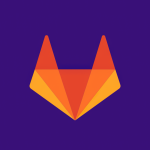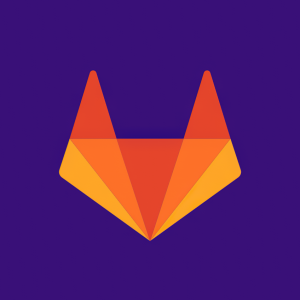Welcome to our dedicated page for Gitlab news (Ticker: GTLB), a resource for investors and traders seeking the latest updates and insights on Gitlab stock.
GitLab Inc. (NASDAQ: GTLB) is an all-remote company that provides what it describes as the most comprehensive, intelligent DevSecOps platform for software innovation. This news page aggregates Business Wire and other disclosures where GitLab reports on its financial performance, leadership changes, product developments, and AI strategy.
Recent news releases highlight GitLab’s focus on AI-native DevSecOps, including the GitLab Duo Agent Platform, which brings agentic AI capabilities into the GitLab platform for human-AI collaboration across the software development lifecycle. The company also reports third-party recognition, such as being named a Leader in the Gartner Magic Quadrant for AI Code Assistants, and discusses enhancements to application security and workflow automation.
Investors and technology professionals can use this feed to follow GitLab’s quarterly financial results, non-GAAP financial measures, operating metrics like annual recurring revenue and dollar-based net retention rate, and updates on strategic collaborations, such as its three-year strategic collaboration agreement with Amazon Web Services to expand access to GitLab Dedicated for regulated industries and the public sector.
GitLab also issues news about executive appointments, including roles such as Chief Financial Officer, Chief Technology Officer, Chief Product and Marketing Officer, and Chief Information Officer, along with participation in technology and investor conferences. Bookmark this page to monitor the latest official announcements that explain how GitLab is evolving its DevSecOps and AI capabilities and how those developments relate to its GTLB stock and broader business trajectory.
GitLab (GTLB) has achieved FedRAMP Authority to Operate status at the Moderate impact level for its GitLab Dedicated for Government platform, under the General Services Administration (GSA) sponsorship. This authorization was granted after GitLab completed a comprehensive assessment process, implementing required security controls, regular audits, and continuous monitoring protocols.
The FedRAMP authorization enables federal government agencies and regulated industries to utilize GitLab's DevSecOps platform with enhanced features including data residency, isolation, and private networking capabilities. This certification validates the platform's ability to meet strict security and compliance requirements while delivering secure software solutions in the cloud.
GitLab has announced the general availability of GitLab Duo with Amazon Q, an integrated offering available for GitLab Ultimate self-managed customers on AWS. The solution embeds Amazon Q's software development agents directly into GitLab's DevSecOps platform.
The integration aims to accelerate complex development tasks and reduce context switching between tools through features including:
- Autonomous feature development that transforms ideas into merge-ready code
- Legacy codebase modernization for Java 8 and 11
- Security vulnerability remediation with one-click fixes
- Automated quality assurance and code review optimization
The collaboration has received positive feedback from early access participants, including Volkswagen Digital Solutions and Availity, highlighting improvements in development workflows and security integration.
GitLab has been awarded the 2025 Google Cloud Technology Partner of the Year Award in the Application Development - DevOps category for the fifth consecutive year. The company has strengthened its partnership with Google Cloud through several product improvements and expanded platform integrations.
The integrations combine GitLab's comprehensive DevSecOps platform capabilities with Google services including Identity Access Management, Workload Identity Federation, Cloud Artifact Registry, and Compute Engine. Joint customers can access complete visibility across the software development lifecycle without switching between systems.
The partnership, which began in 2018, has proven successful for customers like Airwallex, whose technology chief of staff Andy Chow praised the platforms' combined capabilities in developing scalable payment infrastructure. Nick Cayou, VP of Global Ecosystem at GitLab, emphasized their commitment to helping customers ship secure software faster while providing an excellent developer experience.
GitLab (NASDAQ: GTLB) reported strong Q4 FY2025 financial results with total revenue reaching $211.4 million, up 29% year-over-year, and full fiscal year revenue of $759.2 million, a 31% increase. The company achieved a non-GAAP operating margin of 18% in Q4.
Key metrics show robust growth with 1,229 customers contributing over $100,000 in Annual Recurring Revenue (ARR), up 29% year-over-year, and 123 customers with over $1M ARR, increasing 28%. The Dollar-Based Net Retention Rate stood at 123%, while total RPO grew 40% to $945.0 million.
The company announced two key leadership changes: Ian Steward will join as Chief Revenue Officer effective May 3, 2025, and David Henshall was appointed to the board of directors. GitLab also highlighted the general availability of GitLab Duo Self-Hosted and the private beta of GitLab Duo Workflow.
GitLab (NASDAQ: GTLB) has announced that Chief Financial Officer Brian Robins will participate in the 2025 Cantor Fitzgerald Global Technology Conference. The presentation will take place in New York on Wednesday, March 12, 2025, at 1:00 p.m. Eastern Time.
The fireside chat will be accessible through a live webcast, with the recording remaining available for one year on GitLab's investor relations website. GitLab, recognized as the most comprehensive AI-powered DevSecOps platform, will provide investors and interested parties the opportunity to gain insights into the company's financial perspective and strategic direction.
GitLab Inc. (NASDAQ: GTLB) has announced that CEO Bill Staples and CFO Brian Robins will participate in the Morgan Stanley Technology, Media & Telecom Conference in San Francisco. The executives will engage in a fireside chat scheduled for 1:50 p.m. Pacific Time on Wednesday, March 5, 2025.
The presentation will be accessible through a live webcast, and both the live stream and replay will be available on GitLab's investor relations website for one year. GitLab, which operates as an AI-powered DevSecOps platform, provides interested parties the opportunity to follow the discussion through a dedicated webcast link.
GitLab Inc. (NASDAQ: GTLB) has announced it will release its fourth quarter and full fiscal year 2025 financial results on Monday, March 3, 2025, after U.S. markets close. The company will host a conference call and webcast at 4:30 p.m. EST / 1:30 p.m. PST on the same day to discuss the financial results.
A webcast replay of the conference call will be available on the investor relations website for one year. The company utilizes its Investor Relations website ir.gitlab.com and X feed (@gitlab) for disclosing material nonpublic information and complying with Regulation FD obligations.
GitLab Inc. (NASDAQ: GTLB), provider of an AI-powered DevSecOps platform, has announced that CFO Brian Robins will participate in the 27th Annual Needham Growth Conference in New York. The presentation will take place on Tuesday, January 14, 2025, at 11:45 a.m. Eastern Time.
The fireside chat will be accessible through a live webcast, and both the live stream and replay will be available on GitLab's investor relations website for one year following the event. Interested parties can access the webcast directly through the provided link.
GitLab Inc. (NASDAQ: GTLB) reported strong financial results for Q3 FY2025, with revenue reaching $196.0 million, up 31% year-over-year. The company demonstrated significant improvements in operating margins, with non-GAAP operating margin reaching 13% compared to 3% in the previous year.
Key metrics showed robust growth with customers having >$100,000 ARR increasing 31% to 1,144, and a Dollar-Based Net Retention Rate of 124%. Total RPO grew 48% to $811.8 million. The company announced a leadership transition, with Bill Staples appointed as CEO, succeeding co-founder Sid Sijbrandij who will become Executive Chair.
For Q4 FY2025, GitLab projects revenue of $205.0-$206.0 million and non-GAAP operating income of $28.0-$29.0 million.


